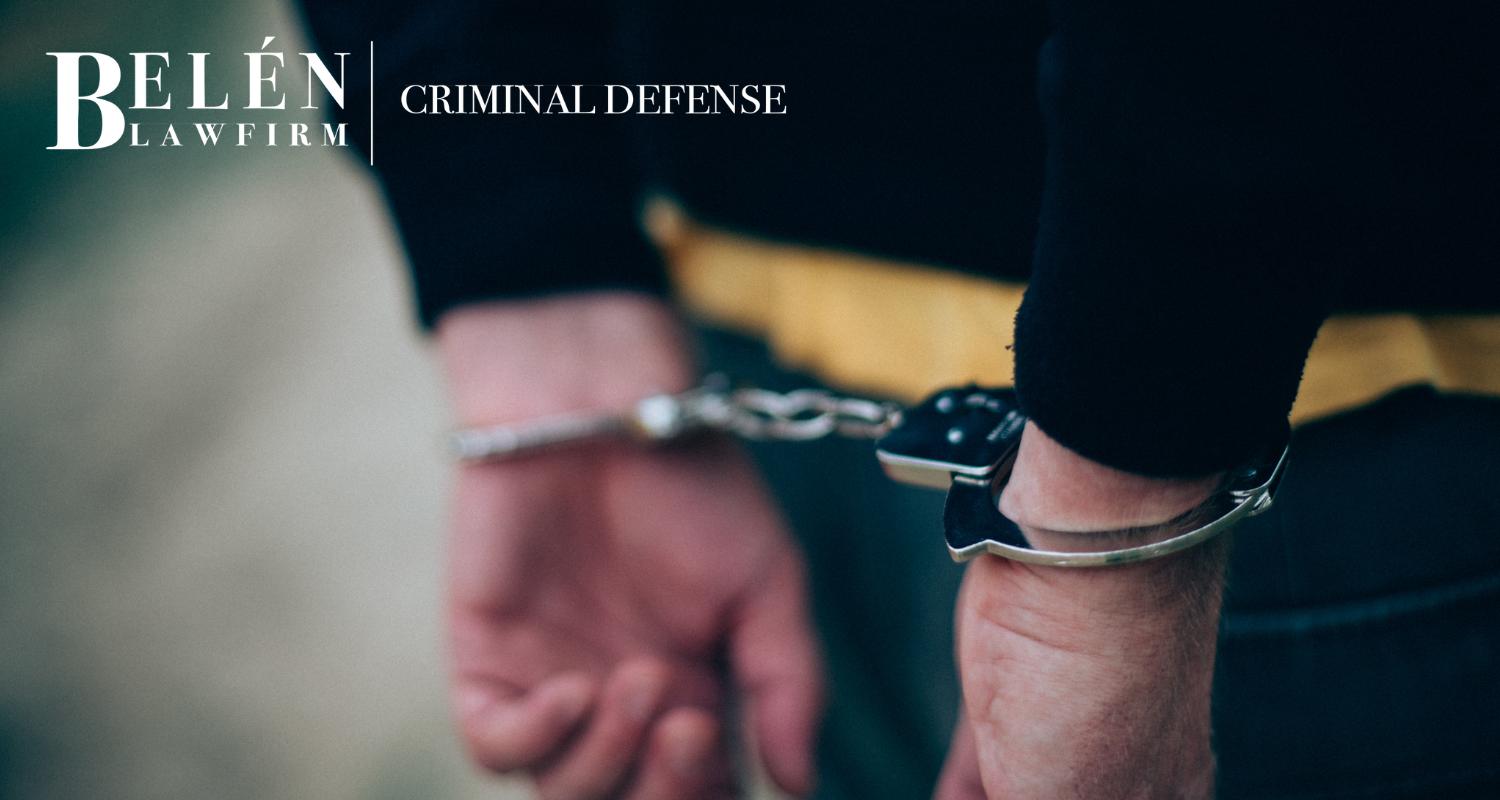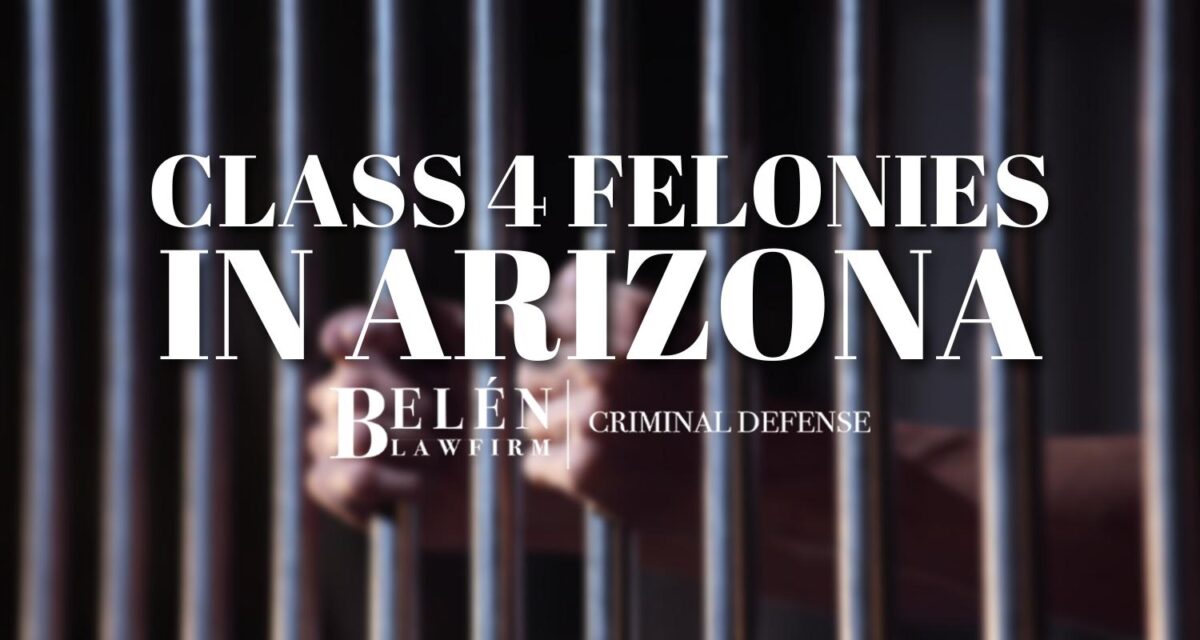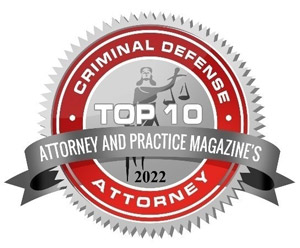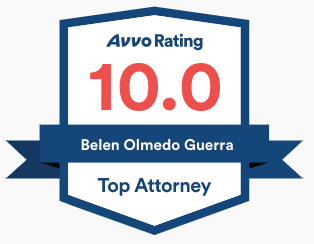If you are facing Class 4 felony charges in Arizona, it is important to seek the assistance of an experienced Phoenix criminal defense attorney. Class 4 felonies are considered serious offenses and as such, can result in serious consequences, including hefty fines and lengthy prison sentences. A criminal defense attorney can help you navigate the legal system, understand your rights, and mount a strong defense to protect your freedom and future.
At Belén Law Firm, our criminal defense attorneys can provide valuable guidance and support throughout the entire legal process. Belén Olmedo Guerra and her legal team can help you understand the charges against you, identify any weaknesses in the prosecution’s case, and develop a comprehensive defense strategy tailored to your specific circumstances. We will also negotiate with prosecutors to secure a plea bargain or reduced sentence or represent you in court to fight for your rights and defend your innocence. With knowledge and experience on their side, a criminal defense attorney from Belén Law Firm can provide you with the best possible chance of achieving a favorable outcome in your case.
In this post, we’ll cover the different types of Class 4 felony crimes in Arizona and the penalties you may be facing if convicted.
What are Considered Class 4 Felonies in AZ?
Class 4 felonies in Arizona encompass over 90 different crimes. The comprehensive list of offenses are as follows:
- Unlawful influence of officer, inspector, or other state employee
- Theft of protected native plants (valued at $1,500 or more)
- Branding or altering brand of animal of another
- Obliterating or changing brand or mark
- Certain racing violations
- Aggravated operating or actual physical control of motorized watercraft while under the influence of intoxicating liquor or drugs
- Interrogatory or signature violations; corporate records
- Interrogatory or signature violations; corporate records
- Attempt of a Class 3 felony
- Solicitation of a Class 2 felony
- Negligent homicide
- Certain violations of aggravated assault
- Custodial interference (if the child or incompetent person is taken out of this state by the parent or custodian or agent or by the agent of the parent or custodian)
- Certain kidnapping violations
- Unlawfully obtaining labor or services
- Voyeurism
- Third-degree burglary
- Criminal damage of $10,000 or more or causing impairment of the functioning of a utility
- Aggravated criminal damage
- Arson of a structure or property (property valued at more than $1,000)
- Arson of an occupied jail or prison facility
- Theft (property or services valued at $3,000 or more but less than $4,000 or any vehicle engine or transmission)
- Extortion
- Shoplifting
- Misappropriation of charter school monies (less than $25,000)
- Robbery
- Forgery
- Identity theft
- Forgery of credit card
- Credit card transaction record theft (at least $2,000 but less than $3,000)
- Collection of extensions of credit by extortionate means
- Participating in or assisting a criminal syndicate
- Bribery of participants in professional or amateur games, sports, horse races, dog races or contests
- Computer tampering
- Unlawful possession of an access device (100 or more)
- Unauthorized release of proprietary or confidential computer security information
- Smuggling
- Residential mortgage fraud
- Knowingly making available a property to be used as a drop house
- Impersonating a peace officer during the commission of certain felonies
- First-degree escape
- Bribery of a public servant or party officer
- Offer to exert improper influence on public officer or employee for consideration
- Perjury
- Influencing a juror
- Introduction of disease or parasite (that is a threat to human health)
- Hoax
- Surreptitious photographing, videotaping, filming, digitally recording or viewing
- Misconduct involving weapons
- Depositing explosives
- Adjudicated delinquents; firearm possession (second or subsequent offense)
- Misconduct involving body armor
- Using or threatening to use a remote stun gun against a law enforcement officer engaged in official duties
- Taking a child for the purpose of prostitution (if the child is 15 years of age or older)
- Possession, use, production, sale or transportation of marijuana
- Possession, use, administration, acquisition, sale, manufacture or transportation of dangerous drugs
- Possession, use, administration, acquisition, sale, manufacture or transportation of narcotic drugs
- Use of wire communication or electronic communication in drug-related transactions
- Using building for sale or manufacture of dangerous or narcotic drugs (fortification)
- Furnishing obscene or harmful items to minors
- Furnishing harmful items to minors by internet
- Obscene or indecent telephone communications to minors for commercial purposes
- Incest
- Child or vulnerable adult abuse
- Consideration for referral of a patient, client or customer; fraud (certain violations)
- Interference with monitoring devices
- Failure to comply with sex offender registration requirements
- Conducting a chop shop (other than owning or operating)
- Possession or sale of cloned cellular or wireless telephones
- Criminal trespass on a commercial nuclear generating station
- Defrauding a professional employer organization
- Vehicular homicide
- Aggravated driving or actual physical control while under the influence of intoxicating liquor or drugs with suspended or revoked license, or a third or subsequent violation in 84 months
- Motor vehicle fuel tax violations
- Interrogatory or signature violations; limited liability company records
- Fraudulent audit practices
- Crimes against the dead (e.g., mutilation, necrophilia)
- Resale of realty with intent to defraud
- Contract, combination, or conspiracy to restrain trade or commerce
- Misuse of public monies by a public officer
- Certain controlled substances violations
- Violation of loyalty oath by public officers and employees
- The withholding or destruction by a former public officer of records or property of office
- Stealing, destroying, altering, or secreting any public record by a public officer
- Violation of law or commission authorizations regarding stock certificates or evidences of indebtedness
- Altering or illegally removing enrolled copy of bill or resolution
- Procurement code violations
- Unlawful solicitation and award of state grants
- Certain criminal violations regarding the collection of taxes
- Failure of employer to remit tax withholdings
- Government contract, combination or conspiracy to restrain trade or commerce
- Sale of unregistered securities
- Securities transactions by unregistered dealers and salesmen
- Certain sale of securities violations
- Fraud in providing investment advisory services

What are the Penalties for a Class 4 Felony in Arizona?
In Arizona, a Class 4 felony is a serious criminal offense that can result in harsh penalties. If convicted of a Class 4 felony offense, a defendant faces a presumptive prison sentence of 2.5 years in prison for a non-dangerous offense and up to 15 years for a dangerous repeat offense. Class 4 felony convictions may also result in hefty fines, mandatory community service, and restitution payments to the victims of the crime.
Class 4 Felony Sentencing Guidelines
Arizona has a mandatory felony sentencing chart that outlines the penalties for each class of felony. Arizona law classifies crimes as non-dangerous offenses, dangerous offenses, or dangerous offenses against children. The charts specify the presumptive sentence, minimum sentence, maximum sentence, and mitigated or aggravated sentence for non-dangerous crimes. They also outline the penalties for individuals with multiple prior felony convictions.
Individuals facing a non-dangerous criminal offense for the first time in Arizona may have their sentence reduced below the mandatory minimum based on mitigating factors or increased beyond the maximum punishment due to aggravating circumstances. To reduce the sentence, the defendant must demonstrate at least two mitigating circumstances, such as their age or limited involvement in the crime. Similarly, two aggravating elements must be present for the sentence to be increased to an aggravated prison sentence.
In Arizona, a dangerous offense involves the discharge or threat of a deadly weapon or dangerous instrument, as well as the intentional and knowing infliction of serious physical injury on another person. The sentencing ranges for dangerous offenses vary based on whether or not the defendant has a prior felony conviction, which is categorized as historical priors or repetitive dangerous offenses. Historical priors include any previous felony conviction committed within 10 years of the current dangerous offense, while repetitive dangerous offenses involve multiple dangerous offenses committed on separate occasions.
Individuals charged with a dangerous crime against a child in Arizona face significantly harsher penalties than those for other types of felonies and have their own sentencing range separate from the others. Similar to dangerous offenses, the penalties for dangerous crimes against children increase with historical priors. There is no set minimum sentence or maximum sentence for such cases.
Below are the sentencing ranges for both non-dangerous and dangerous Class 4 felonies (with historical priors and dangerous repeat offenses) including the mitigated and aggravated sentence, presumptive sentence, and minimum and maximum sentence, as applicable.
Non-Dangerous Crimes
# of Historical Priors | Mitigated | Minimum | Presumptive | Maximum | Aggravated |
0 | 1 year | 1.5 years | 2.5 years | 3 years | 3.75 years |
1 | 1 year | 1.5 years | 2.5 years | 3 years | 3.75 years |
2 | 2.25 years | 3 years | 4.5 years | 6 years | 7.5 years |
3 | 6 years | 8 years | 10 years | 12 years | 15 years |
Dangerous Crimes With Historical Priors
# of Historical Priors | Minimum | Presumptive | Maximum |
0 | 4 years | 6 years | 8 years |
1 | 8 years | 10 years | 12 years |
2 | 12 years | 14 years | 16 years |
Dangerous Crimes With Repeat Dangerous Offenses
Repeat Offense # | Minimum | Maximum | Increased Maximum |
2 | 6 years | 8 years | 10 years |
3+ | 10 years | 12 years | 15 years |

Other Degrees of Felonies in Arizona
Class 1 Felonies in Arizona
In Arizona, only two offenses fall under Class 1 felonies: first-degree murder and second-degree murder. These are the gravest criminal offenses an individual can commit as per the state’s laws. A person found guilty of an Arizona Class 1 felony faces the severest penalties, such as lifelong incarceration or even capital punishment. Specifically, a conviction for first-degree murder in Arizona may lead to natural life imprisonment, life imprisonment, or the death penalty. On the other hand, second-degree murder charges in Arizona may result in a presumptive sentence of 16 years, a maximum sentence of 25 years, and a minimum sentence of 10 years in prison.
Class 2 Felonies in Arizona
Class 2 felonies in Arizona rank just below Class 1 felonies in Arizona and are considered the second most severe criminal offenses in the state. Some examples of such offenses include armed robbery, sexual assault, terrorism, molestation of a child, and certain drug crimes. Non-dangerous Class 2 felonies are typically associated with a presumptive sentence of 5 years in prison, but the sentence can be enhanced to between 9.25 years and 15.75 years. If the accused is found guilty of a dangerous offense, the penalty for a first offense could be as high as 21 years in prison, but if the person has three or more dangerous offenses on their record, they may face a maximum sentence of 35 years in prison.
Class 3 Felonies in Arizona
Class 3 felonies in Arizona are serious criminal offenses, but they are less severe than Class 1 and Class 2 felonies. Some examples of Class 3 felonies include aggravated assault, second-degree burglary, aggravated robbery, and sexual abuse of a child below the age of 15. The presumptive sentence for a non-dangerous Class 3 felony is three and a half years, while a dangerous repeat offender may face up to 25 years in prison.
Class 5 Felonies in Arizona
Individuals found guilty of a Class 5 felony in Arizona can face a sentence of up to six months for a non-dangerous first offense, while a dangerous repeat offense may lead to a maximum sentence of seven and a half years. Class 5 felonies include offenses such as credit card theft, prostitution, public sexual indecency before a minor, and aggravated assault on a police officer.
Class 6 Felonies in Arizona
Class 6 felonies are considered the least serious felonies in Arizona. Offenses such as aggravated domestic violence, possession of drug paraphernalia, and resisting arrest are examples of Class 6 felonies. The presumptive term for a non-dangerous, first-offense Class 6 felony crime is 1 year in prison, while a dangerous offender with historical priors may face up to 6 years in prison.





















